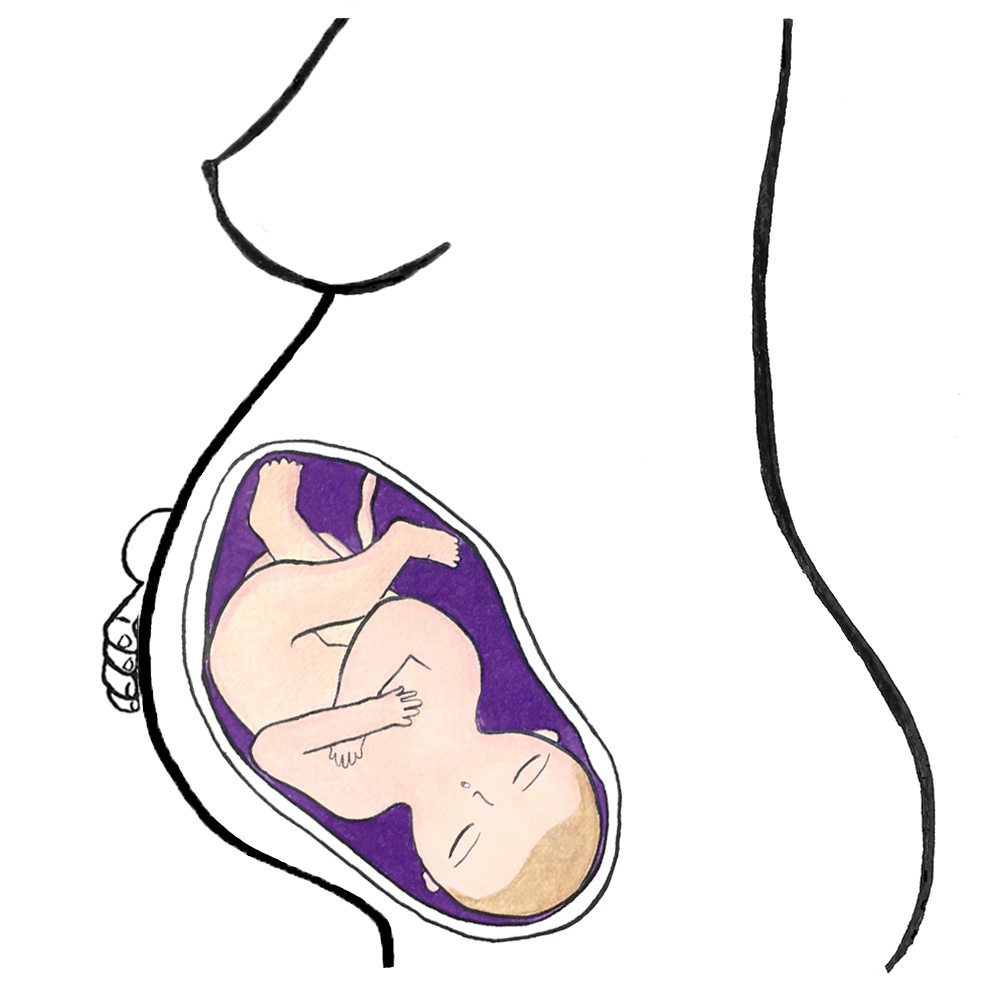35 weeks pregnant
Weekly update

Most of Your Child’s bones and organs are almost fully developed.
You may start getting contractions more often and may have increased vaginal discharge.
Your Child’s development
At this stage, most babies would’ve turned from the breech position to the head-down position.
The head-down position: After adopting the head-down position, the little one would move further into the pelvis. For first pregnancies, this occurs earlier, many weeks before the due date. But in other pregnancies, it may happen around the time of labor.
Getting ready: Your Child’s skeletal development, as well as organ formation, is complete, and the little one is getting ready for the delivery day. However, the lungs are still maturing.
Your Child now weighs about 2.3 kg and measures 46 cm in height — the size of a coconut.
Genitals: In most baby boys, the testes are now arriving at their final home, the scrotum.

Your development
Your uterus will start getting ready for labor, so you may start getting frequent, painful, and longer-lasting contractions.
Colostrum: Your breast may soon have a thick yellowish discharge called colostrum. Colostrum is the first food a baby gets after birth. It is filled with antibodies and important nutrients that help Your Child build strong immunity. You may need to get a pad to avoid wetting your clothes.
Contractions: The contractions are going to start getting more frequent, longer-lasting, and more painful — it is your uterus preparing itself to give birth. Some moms feel these early contractions in the form of light hardening of their belly.
What you can do
Between weeks 35 and 37 of your pregnancy, you will be recommended to get tested for group B streptococcus bacteria.
Group B Strep Test: A swab of the vagina and rectum will be taken and sent to a lab for testing. About 25% of all healthy women carry this bacteria, and, usually, it’s harmless, but in newborns, it can cause life-threatening complications, such as meningitis, pneumonia, or blood poisoning.
To prevent the baby from getting infected during a vaginal delivery, antibiotics will be given during labor.
Undescended testicles: If you expect a boy and Your Child is diagnosed as undescended testicles, ask your doctor how often Your Child will need to be examined during the first month after birth.
Verified:
Dr. Wanwadee Sapmee Panyakat (OB-GYN), license no. 41208 (20 October 2021)



